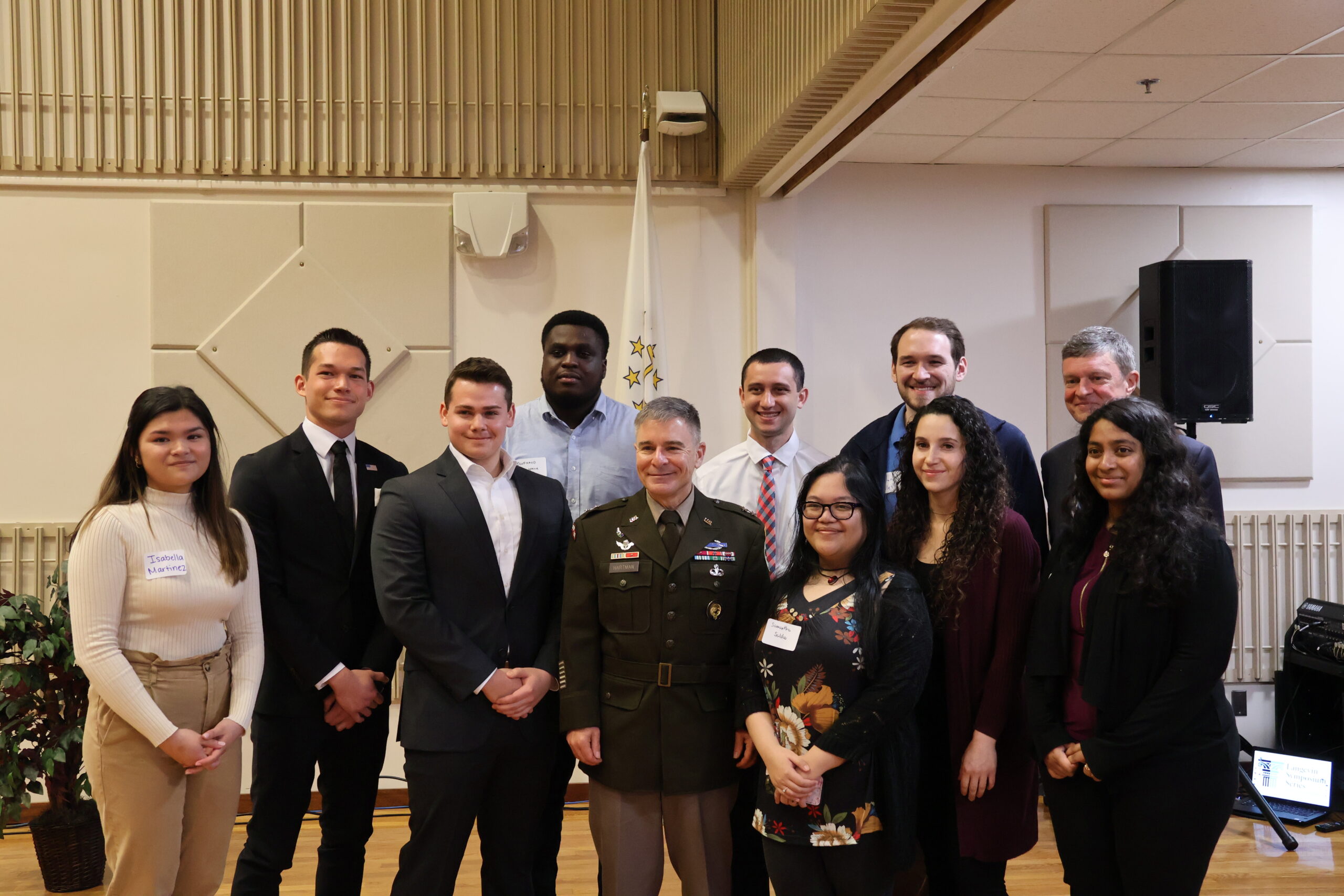Photo from Cyber Warfare: Understanding National Security in the 21st Century as the biannual Langevin series. PHOTO CREDIT: Lucas Masiello | Staff Photographer
The University of Rhode Island hosted “Cyber Warfare: Understanding National Security in the 21st Century” as a part of its biannual Langevin Symposium Series, where the nation’s pioneers in government cybersecurity discussed the government’s work in adapting national security priorities to a technology-dominated world.
The Langevin Symposium is a new series that brings in nationally recognized experts in various fields of national security, civics and democracy. The event happened on Monday, April 17 in the Memorial Union Ballroom.
University President Marc Parlange welcomed the audience, followed by opening remarks from former U.S. Congressman James R. Langevin, the namesake of the series.
Langevin, who sat on the Congressional Armed Services Committee and Committee on Homeland Security, was a pioneer in government-funded cybersecurity throughout his two decades of public service. While on the Homeland Security Committee, Langevin was a founding member of the Subcommittee on Cybersecurity and Infrastructure Protection, Congress’s first committee focused on the relationship between cybersecurity and national security.
Speaking on the development of the U.S. Cyber Command and the Cybersecurity and Infrastructure Security Agency, Langevin expressed optimism about the future of the United States’ role in the world of information security.
“In doing this work since 2007, I’ve never felt more confident than I am now,” Langevin said. “This is structured in the right way, and in terms of how we’re prepared to protect the country against cyber attacks and as a consequence, we have the right people and the right policies in place.”
Following the Representative’s opening remarks, Valerie M. Cofield, chief strategy officer of the Department of Homeland Security’s Cybersecurity and Infrastructure Security Agency (CISA), presented on the four-year-old organization’s work in revolutionizing Homeland Security’s approach to cybercrime and national security. Focused on protecting both professional and government organizations, CISA plays a key role in American cybersecurity.
“There’s an understanding on the military side of some of the responsibilities that the U.S. military has when it comes to cyber, but I don’t think there’s always,” Cofield said. “Very good understanding on the defensive side of what space and what role the U.S. Government plays. This mission is to defend the .gov.”
The federal government’s federal civilian executive board is really one thing that, together with OMB and the Federal CIO system, works together to defend the dark web space, Cofield said. Most of that critical infrastructure is actually owned and operated by the private sector. As a civilian defense agency, CISA works day to day with the private sector, because over 85-90% of the infrastructure is owned by them.
Major General William J. Hartman, who commands the Cyber National Mission Force, talked about military operations.
The branch of the U.S. military’s Cyber Command tasked with implementing theoretical plans in real life, the Cyber National Mission Force is tasked with implementing cybersecurity infrastructure in American and allied networks. Hartman focused his presentation on the work his force did in the lead-up to Russia’s invasion of Ukraine.
While conventional political thought in the months before the war assumed that cyber attacks would be a driving factor in modern warfare, Hartman said the preparations that the U.S. Army took to prepare Ukraine and NATO allies for the Russian invasion. Preventing critical attacks on cyber and grid infrastructure, he argued, allowed the Ukrainians to focus on conventional warfare and level the playing field for the rest of the war.
“I worked with Ukraine during the Russian invasion at the venue of cyber attacks that Russia would perpetrate on Ukraine,” Major General Hartman said. “In doing that, we knew that there was a potential for blowback here. Was Russia going to have a counterattack against us in our critical infrastructure? There could have been some pretty bad things happening throughout the last year, so infrastructure had to be put in place to come up with the shields up.”
Cofield and Hartman’s presentation were just the first portions of the event. To end the day, Assistant Professor of Political Science Roya Izadi moderated a panel with Cofield, Langevin and Hartman.





